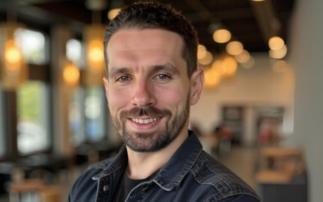Kevin Burnham stresses that firms must attract and retain new talent or risk a massive protection advice gap.
Are we rapidly sleepwalking into a time where there are not enough financial advisers to support the needs of the growing UK population?
According to the NMG’s Financial Adviser Census to May 2014, 67% of advisers were aged between 40 and 59 years old, while a further 14% were above that age.
Just 8% of the advisers surveyed were younger than 35, resulting in an average age for financial advisers of 49.
There are precious few institutions investing in bringing new advisers to replace those who will shortly want to retire to the golf course.
In the distant past, institutions such as the Pru and Pearl Assurance acted as the colleges and universities of our industry as they built and trained large direct salesforces. They don’t do this anymore.
Recruitment troubles
More recently, the banks took over recruitment on a smaller scale and brought in a swathe of new advisers.
These people were then let go as the banks closed or cut back their salesforces. I personally think we are looking over the precipice to large numbers of ageing advisers leaving the industry in the next five to 10 years with no plan to replace them (I’m in my 50s too so I’m not far behind ).
There are of course places advisers can join the industry but they are now few and far between. Another factor is that trainee advisers need a long period of study before they can generate an income to cover their living costs. Again, this not an option for many.
Other issues to consider amid the growing advice gap include the UK obesity epidemic and poor fitness levels, which will impact life and health insurance premiums.
In addition, the explosive growth of wearable fitness monitoring technology means you have a rapidly evolving market that needs users to be involved when engaging with like minded clients.
You will have no doubt seen wearable technology, a growing array of smartphone apps, the advent of affordable private genetic tests such as ‘23 and me’ and full body scans from the likes of Lifescan. Quite simply, the basis of current insurance contracts is being challenged.
I believe these developments offer many new opportunities to recast the role of a protection-focused adviser as a holistic lifestyle and financial planner.
Heads in the sand
Did you know we share between 60%-75% of our genetic code with an ostrich (and other birds?) It seems to me that we behave in a similar way – our industry has its head deeply buried in the sand on the issue of recruiting new blood.
I can only assume we are hoping the problem will just go away on its own. The truth is it won’t. As much as some advisers will want to carry on working through their retirement, there will be many who won’t or can’t continue as their health or circumstances change.
This leaves us with a real problem which we need to address urgently if we want to keep our industry vibrant and relevant to a population we (the older generation) are increasingly out of step with.
So what is the answer?
I believe it will take many steps and plans to address this lack of investment in our financial futures.
Education has a role – although attempts to add financial sense to the National Curriculum hasn’t seemed to have gained much traction. This leaves us looking for ways to find and support new blood into our industry.
Surely there must be many bright personable minds out there who would want to start a career in the world of finance?
I didn’t plan this career when I left school in September 1979 and joined the Burnley Building Society as a trainee. Looking back, it has been a great industry to work in – I’ve met good friends and worked with great people in the 35 and a bit years that followed.
My story is pretty common; few of us planned to join this industry but back then, there were many roads that led to careers in finance. My point is there just aren’t that many roads to this profession anymore!
So what am I and the team at Charles Derby doing to help?
Firstly, we have created the Charles Derby Academy as a place where non-industry recruits could be supported
while they learned to sell our industry’s products and study in parallel for their professional exams.
We work closely with our network Intrinsic to support our recruits closely while they build their skills and knowledge. Most importantly we show them a genuine career path.
From the start of their career, our trainees begin to earn as self-employed protection advisers.
Selling protection was the foundation block of many (including my own) careers and I believe it provides the base for a new breed of advisers to take up modern industry challenges.
We take new advisers from leaving college, university and from other
careers. We particularly look for those demonstrating good relationship-building and people skills and we support them all the way to Chartered status.
We have also partnered with the Career Transition Partnership. This is a branch of the UK armed forces that helps integrate service personnel into their next roles. Again this is a great fit with the disciplines required to be a successful financial adviser.
What are our plans?
In terms of our recruitment, we aim to grow from around 400 to 1000 advisers nationally by the end of 2016. This would be a stretch if we were only looking at recruiting existing advisers and firms, though of course we do want to attract our share of those too.
In addition, we are also looking into some novel business models and will explore these to help us achieve many of our recruitment goals. We see business protection as key: working with other professionals such as accountants and solicitors brings opportunities to recruit new advisers from the pool of graduates who hold business and law degrees.
By taking an ‘Event risk audit’ based approach we will look to work closely
with these professionals to help them provide valuable contingency and risk analysis for their business clients using novel world class tools. These are the sorts of challenges we look forward to.
Encouraging a debate
Overall, what I would love is to start a wider industry debate on how we can
all help deal with this national dilemma and assist in revitalising the profile of our profession to make it an accessible and exciting industry to join for a wide range
of candidates.
The lack of new talent is a potential crisis in waiting for the whole industry and I for one want to do my bit to help ensure that it doesn’t become that.
Kevin Burnham is protection director of Charles Derby Group and founder member of the Protect Britain Better movement on Linkedin










